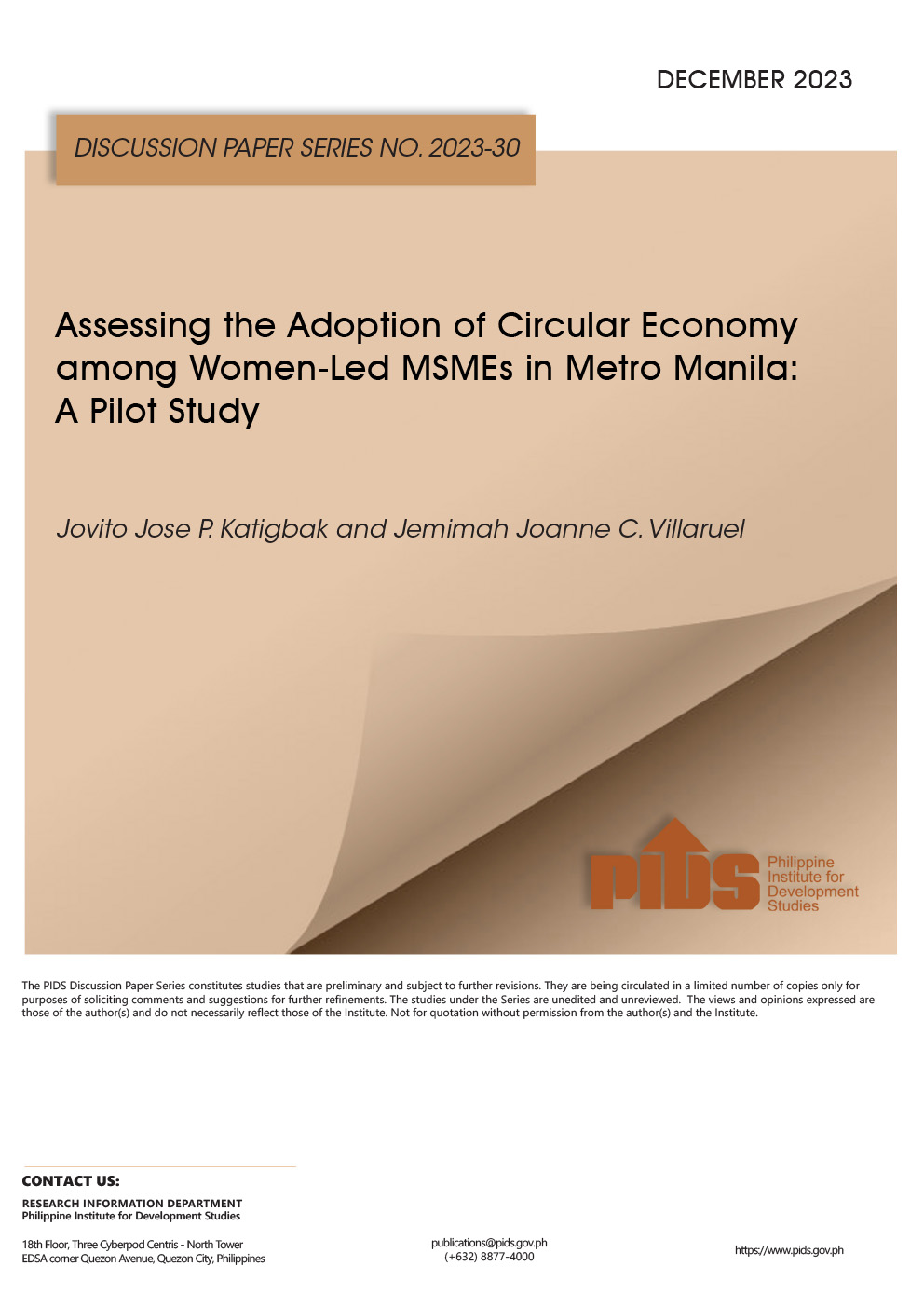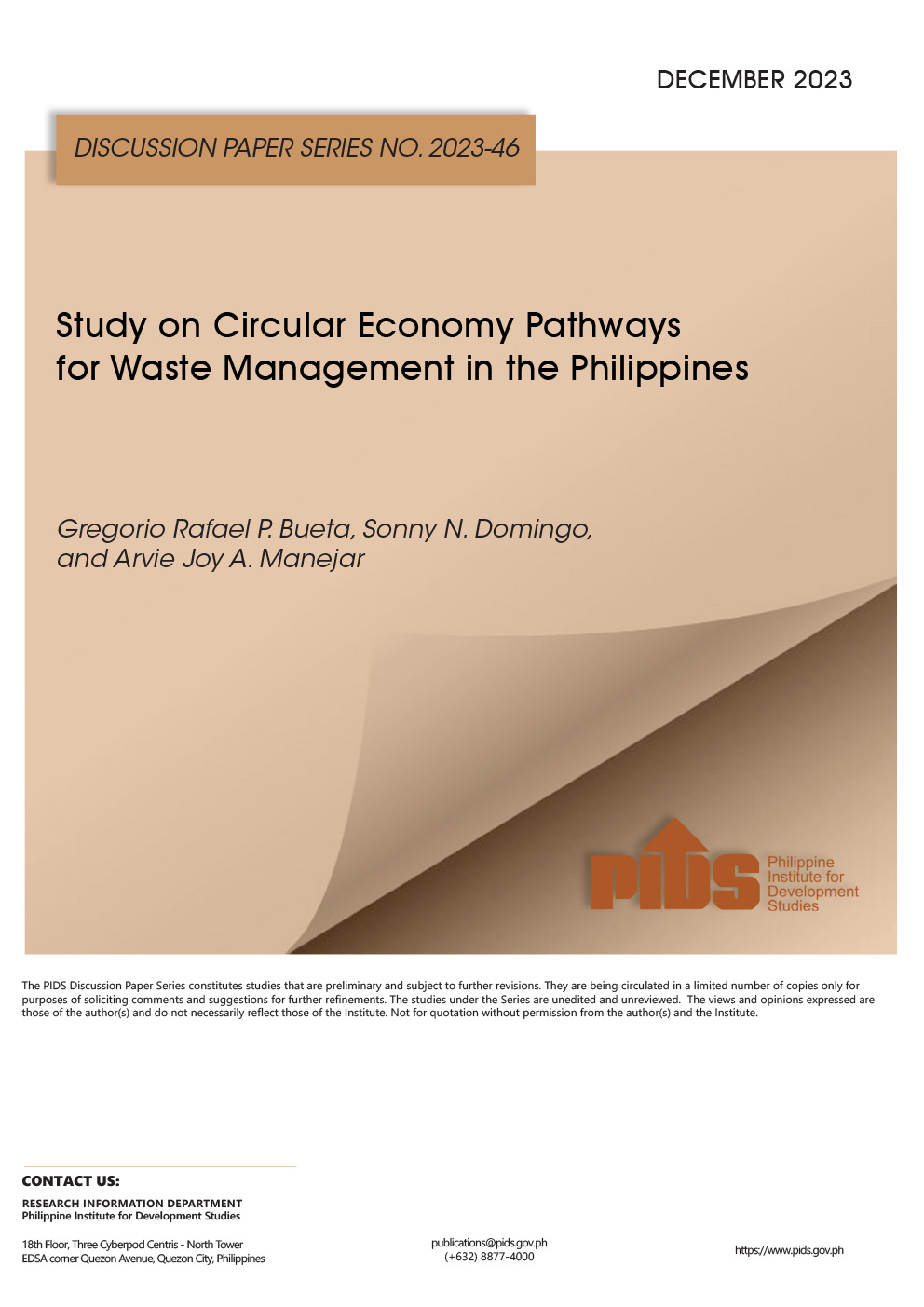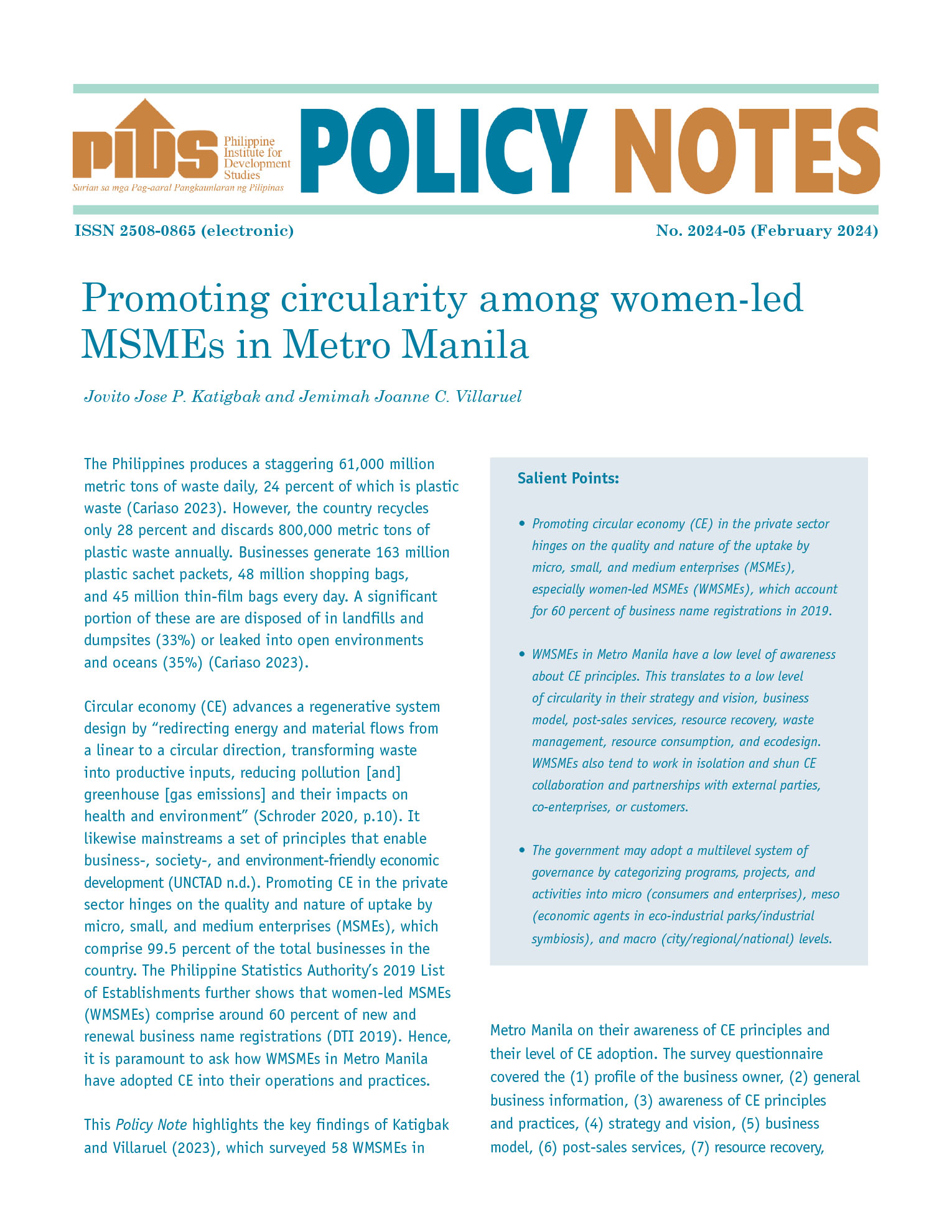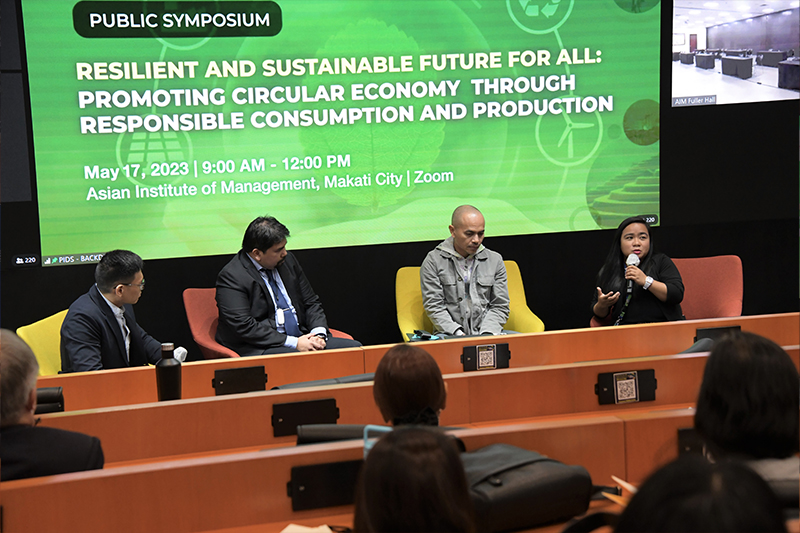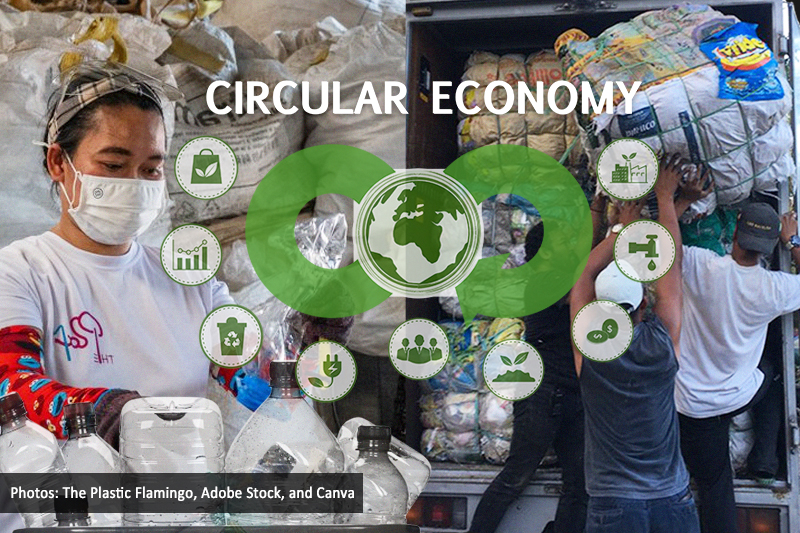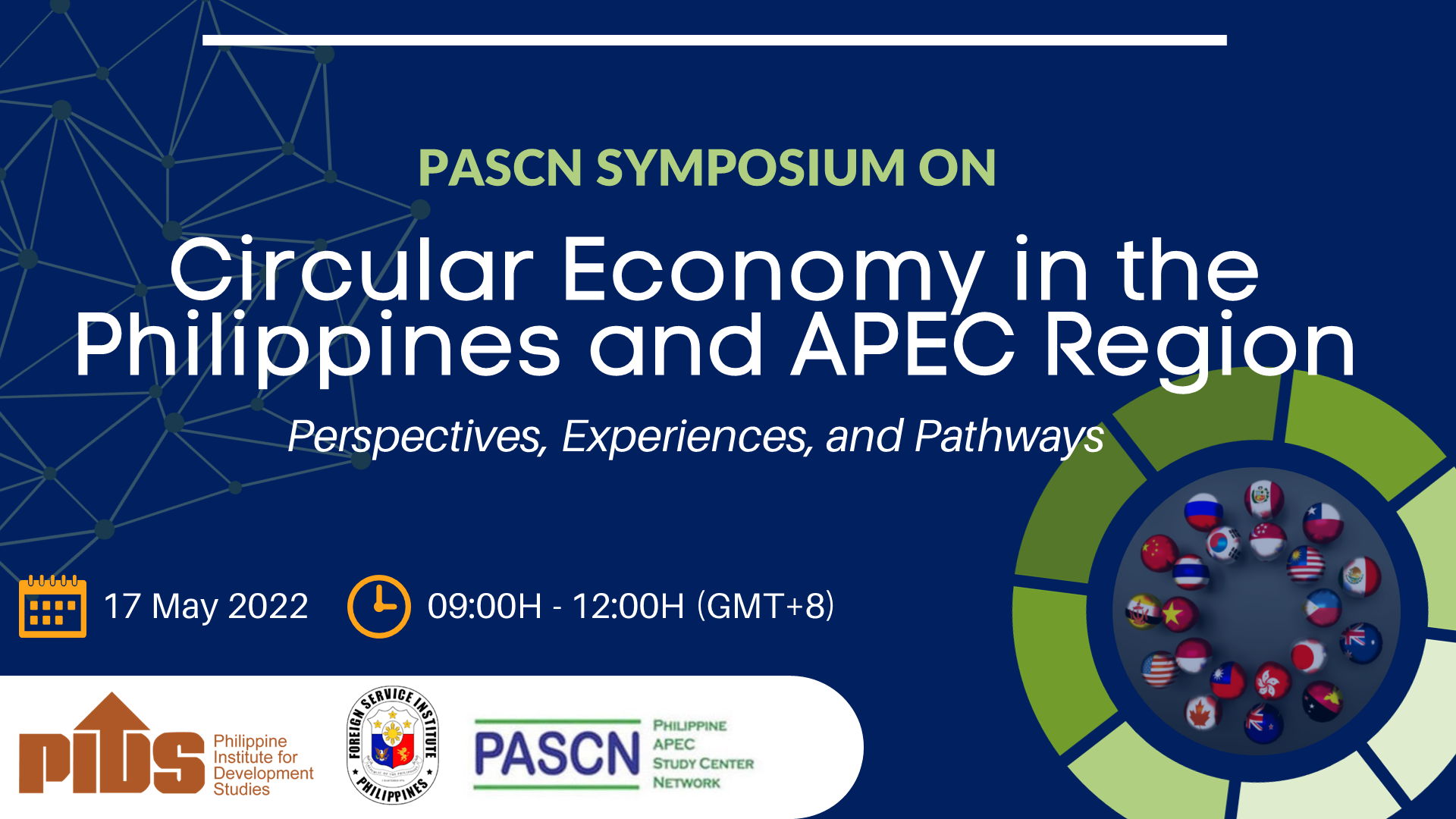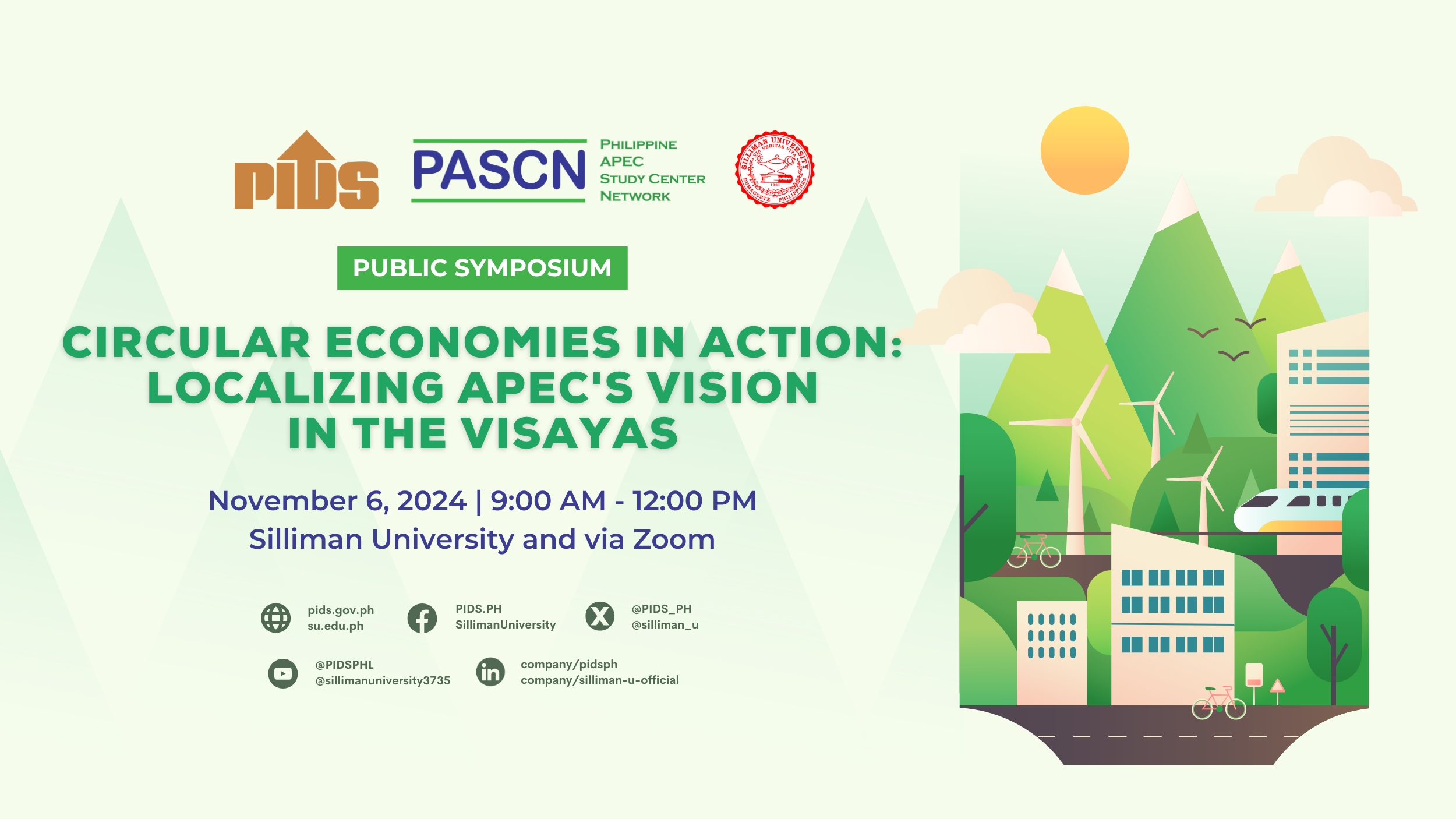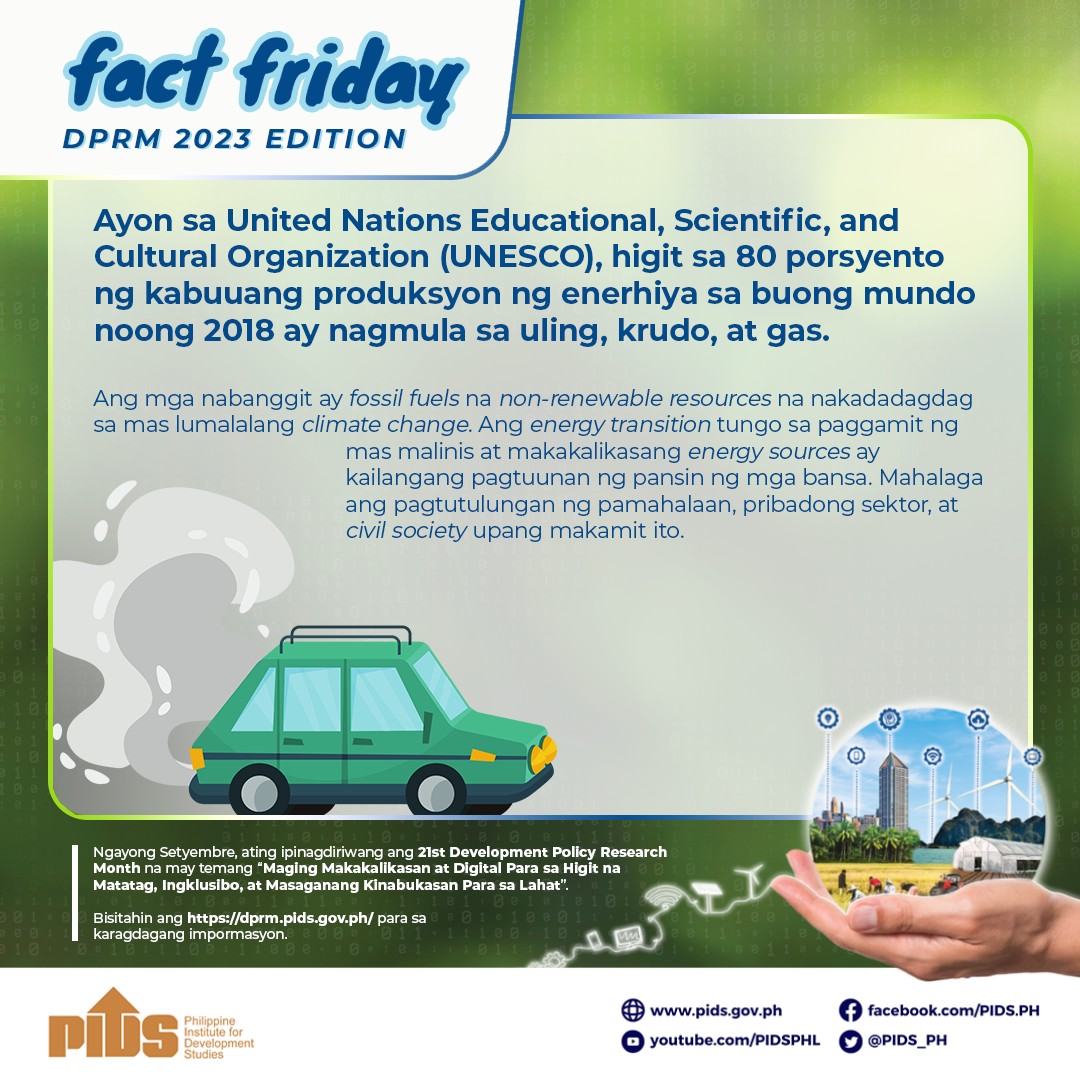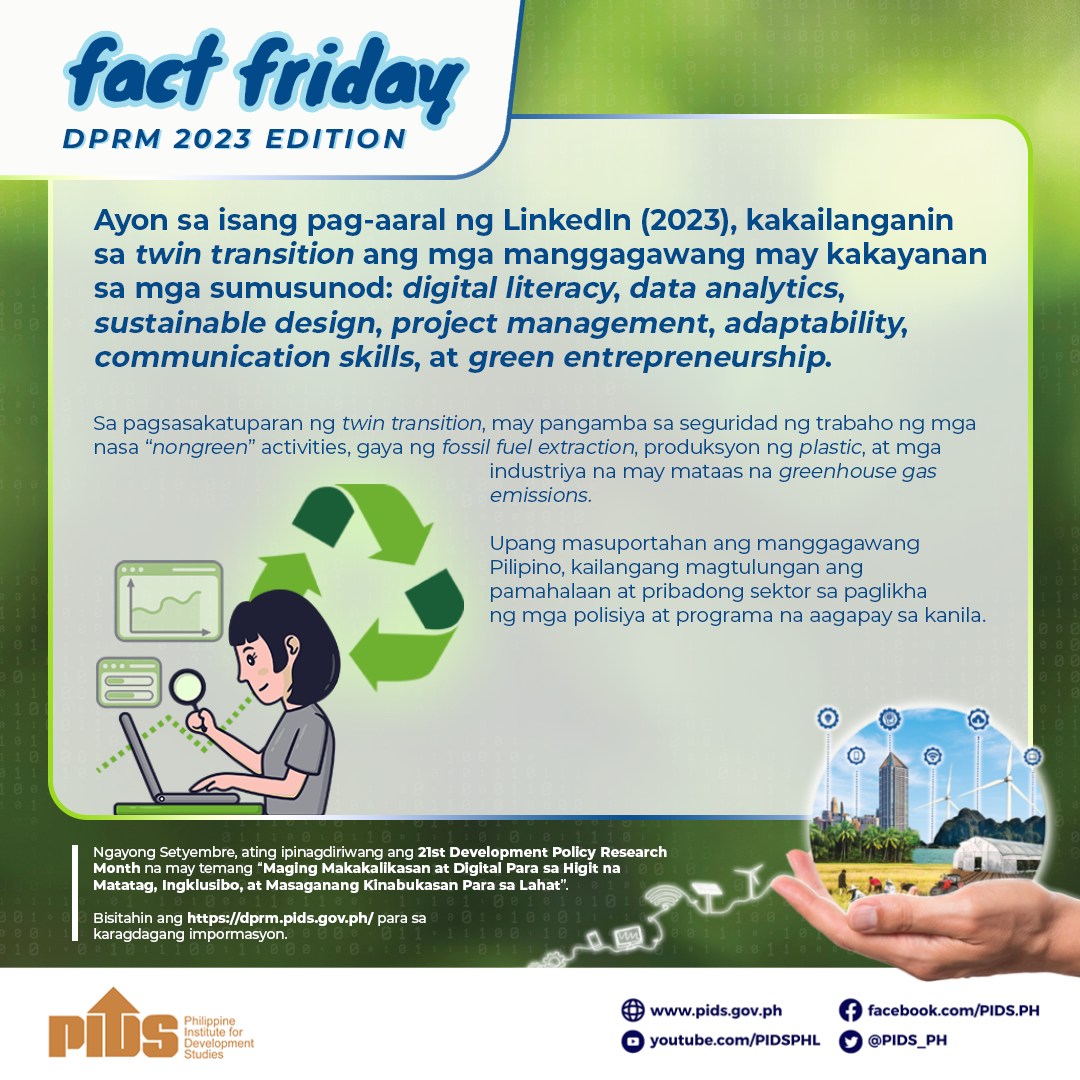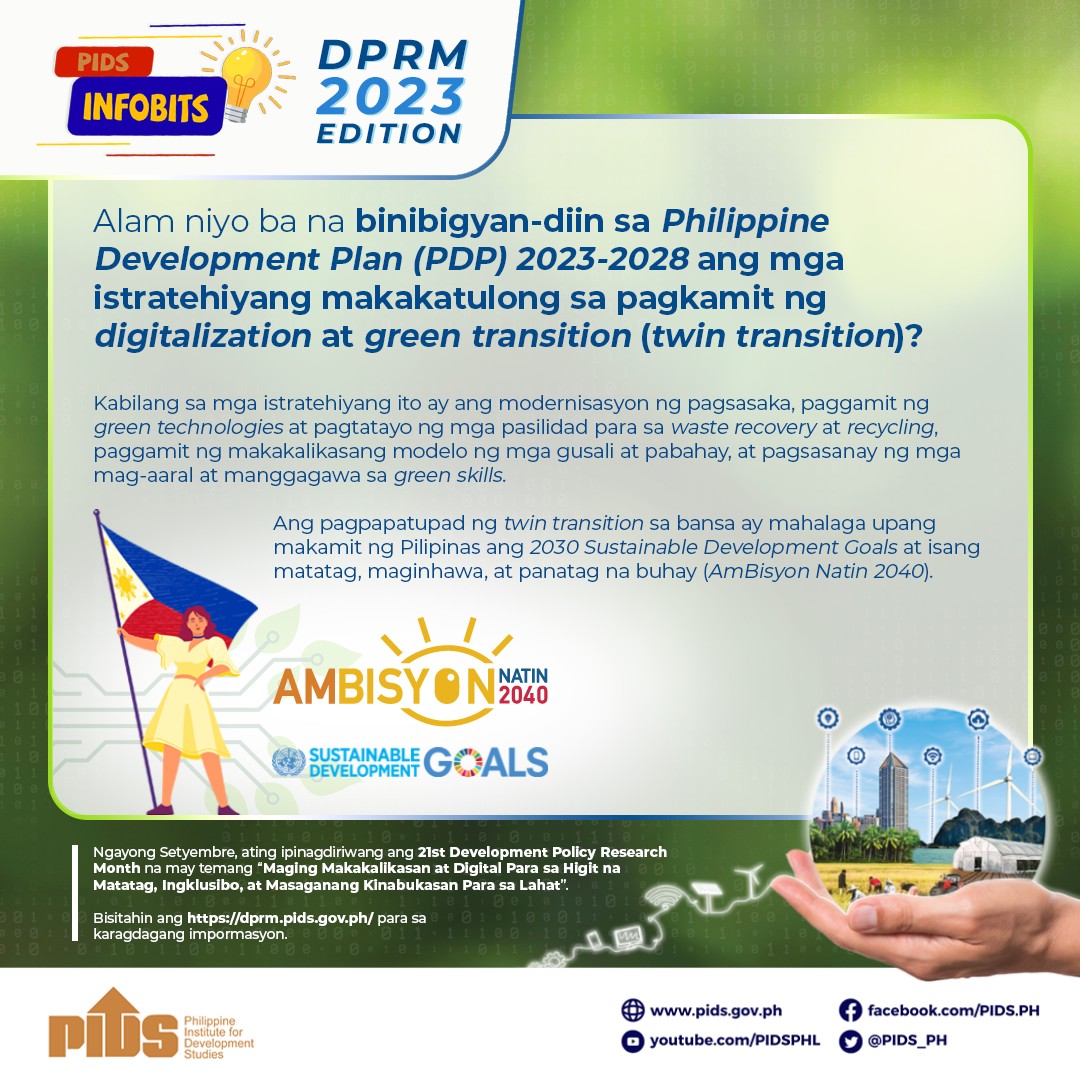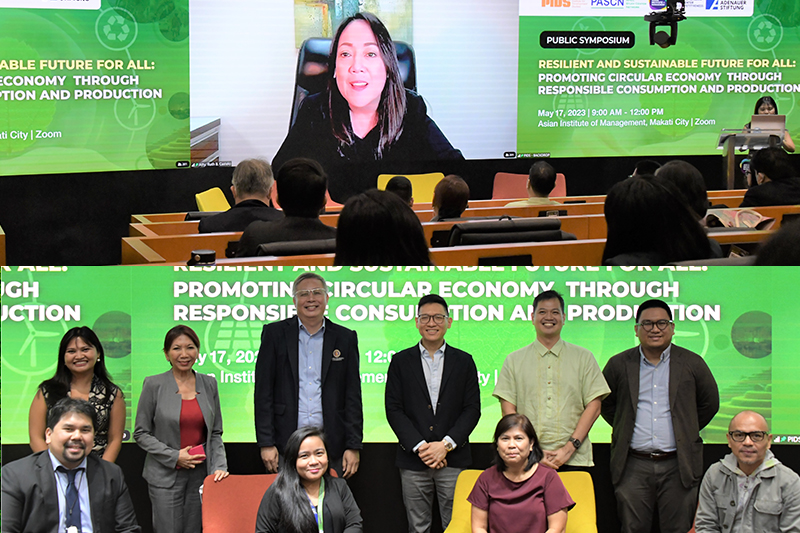
Implementing the Extended Producer Responsibility (EPR) Act and ensuring sustainable consumption as part of the circular economy initiative requires the commitment and cooperation of all stakeholders.
This was emphasized by experts in a recent webinar organized by the Philippine APEC Study Center Network (PASCN) and the Philippine Institute for Development Studies (PIDS) in partnership with the Asian Institute of Management Rizalino S. Navarro Policy Center for Competitiveness and with the support of Konrad Adenauer Stiftung Philippines.
The two-panel symposium “Resilient and Sustainable Future for All: Promoting Circular Economy through Responsible Consumption and Production” featured the concept of circular economy and how it can promote a regenerative and restorative system for economic development and help achieve the Sustainable Development Goals in the Philippines and Asia-Pacific Economic Cooperation (APEC) region. The speakers—who represented the APEC Secretariat, government, academe, and the private sector—presented case studies on Extended Producer Responsibility (EPR), a policy approach highlighting the producer’s responsibility throughout the product lifecycle and a vital instrument for a circular economy.
In her keynote speech, Department of Trade and Industry Undersecretary for Consumer Protection Group Atty. Ruth Castelo emphasized that working toward sustainable consumption is not the government’s responsibility alone. “Sustainable consumption and production require the cooperation among many different stakeholders across different sectors in the country,” she said.
She noted that Indonesia, the Philippines, Viet Nam, Thailand, and Malaysia are the topmost plastic-polluting countries in the Association of Southeast Asian Nations region, contributing to a third of the global mismanaged plastic waste.
To help address this, the Philippines enacted the EPR Act of 2022. Under the EPR law, companies operating on a significant scale must create a system for efficient waste management until the end-of-life stage of their products.
“The EPR Act aims to adopt and institutionalize the EPR mechanism as an environmental policy and practical approach to have efficient waste management—focusing on reuse, reduction, recycling, and development of environment-friendly products that advocate the internationally accepted principles on sustainable consumption and production, circular economy, and producers' full responsibility throughout the life cycle of their products, especially at the post-consumer or end-of-life stage,” Atty. Ivy Joyce L. De Pedro of the Department of Environment and Natural Resources (DENR) Environmental Management Bureau explained.
The EPR Act considers the nonregistration of covered companies as an offense. The DENR’s Pollution Adjudication Board has “the jurisdiction for imposing fines and penalties for plastic pollution cases”. De Pedro added that the law covers plastic packaging waste, regardless of content.
Panelist Atty. Gregorio Rafael Bueta, an adjunct faculty member of the Ateneo de Manila University School of Law, stressed that while the EPR law is vital in transitioning to a circular economy, it is not a “magic bullet” that can solve the country’s waste management woes.
“We need a whole-of-society approach. EPR makes producers primarily responsible, but the citizens or customers and even the government have a role to play. We have a responsibility to follow and support these measures. We should change our behavior and habits in how we consume products,” he said.
Greenpeace Philippines Country Director Lea Guerrero added that lifestyle changes and recycling are not the only key to solving waste problems, which she said are often considered the consumers’ fault.
“Corporations must drastically reduce plastic production and use while investing in reuse and refill systems. Governments must also hold corporations accountable for the pollution they produce. They need to create strong policies for reduction and mandate actions higher up the 9Rs hierarchy (rethink, refuse, reduce, reuse, re-gift, repair, rent, recycle, and rot), not the bottom,” she suggested.
“Beyond changing habits, citizens can help catalyze systems change by mobilizing, participating, and holding companies accountable to bring back just and better economic, social, and political systems,” Guerrero said.
View the hybrid symposium’s photo album here.
Watch the webinar at https://fb.watch/kIRx1FaxZl/ or https://youtu.be/joQIVb2l1Jc.
For more videos of PIDS events, go to https://www.pids.gov.ph/videos. ###

